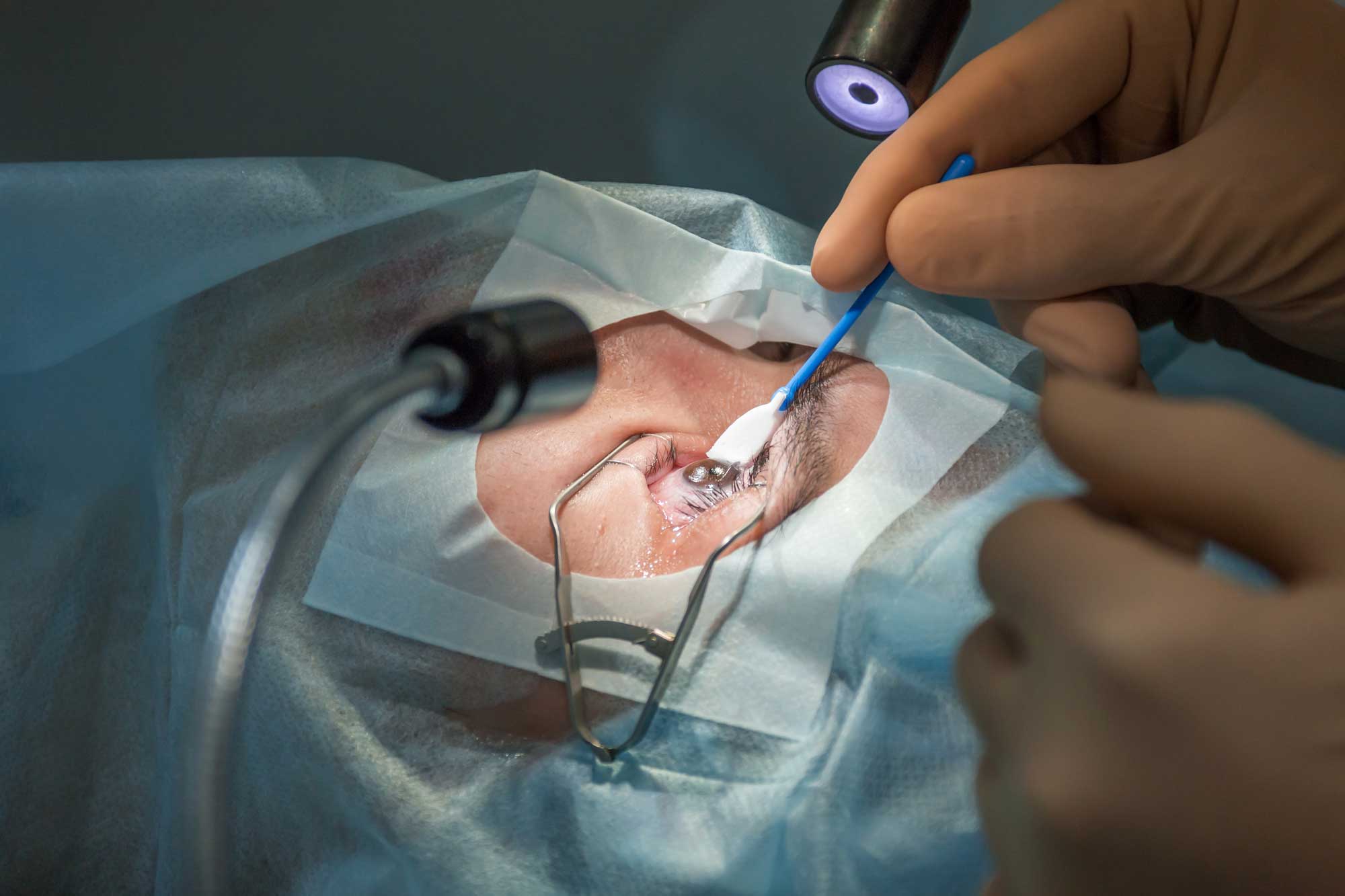LASIK (laser-assisted in situ keratomileusis) and other types of laser eye surgery are designed to treat myopia (nearsightedness), hyperopia (farsightedness), and astigmatism, and can allow you to see without glasses or contacts (source) until your eyes change. However, they don’t always work as intended. To make an informed decision about LASIK surgery, you need to educate yourself not only about the benefits of the procedure, but also about the risks for LASIK complications and side effects.
LASIK Complications
LASIK complications that result in a complete loss of vision are very rare. But certain side effects of LASIK eye surgery, particularly dry eyes and temporary visual disturbances, are fairly common. These could clear up after a few weeks or months, or they could become a long-term problem.
Dry Eyes
One of the most common LASIK complications is dry eye. Refractive surgery may cause a decrease in tear production and does disrupt the natural state of the corneal stroma of deturgescence. This process of the cornea involves dehydration and maintains cornea transparency as well as the metabolic transporting system in the endothelium. Many that elect to have this surgery done feel that their eyes are unusually dry for the first six months as they heal. This can significantly reduce the quality of your vision. If you experience severe dry eyes after the surgery, you could opt for another procedure to get special plugs put in your tear ducts to prevent your tears from draining away from the surface of your eyes.
Glare, Halos, and Double Vision
After surgery you may have difficulty seeing at night. You might notice glare, halos around bright lights, or double vision. This may last a couple of weeks or continue forever. Additionally, even when your eyesight is good under standard conditions, your vision in dim light (such as at dusk or in fog) may be reduced after surgery.
Undercorrections
If the laser removes too little tissue from your eye, you won’t get the results you were hoping for. Undercorrections are more common for people who are nearsighted. You may need another LASIK surgery to remove more tissue.
Overcorrections
It’s also possible that the laser will remove too much tissue from your eye. Overcorrections may be more difficult to fix than undercorrections.
Astigmatism
Astigmatism can be caused by uneven tissue removal. It may require additional surgery, glasses, or contact lenses.
Flap Problems
Folding back or removing the flap from the front of your eye during surgery can cause complications, including infection and excess tears. The outermost corneal tissue layer (epithelium) may grow abnormally underneath the flap during the healing process.
Vision Loss or Changes
In rare cases, people experience vision loss due to surgical complications of LASIK. Some people also may not see as sharply or clearly as they did previously.
When Is LASIK Not for Me?
Some people are not good candidates for LASIK surgery. According to the U.S. Food & Drug Association, you might want to reconsider getting the procedure if any of the following conditions apply to you:
- You are not a risk taker. Certain LASIK complications are unavoidable in a percentage of patients. Plus, there is no long-term data available for current procedures, making it a risky option.
- It will jeopardize your career. Some jobs prohibit certain refractive procedures. Be sure to check with your employer, professional society, or military service before undergoing any procedure.
- Cost is an issue. Most medical insurance will not pay for refractive surgery. Although the cost is coming down, it is still significant. Double-check with your insurance provider to learn what portion of the cost is covered, if any.
- Your prescription changed in the past year. This is called refractive instability. Patients with eyes that have needed a change in prescription will experience the same thing after LASIK surgery. Those that are in their early 20s or younger, whose hormones are fluctuating due to a disease like diabetes, who are pregnant or breastfeeding, or who are taking medications that may cause fluctuations in vision should discuss the possible additional risks with their doctor.
- You have a disease or are on medications. Certain conditions, such as autoimmune diseases (e.g., lupus, rheumatoid arthritis), immunodeficiency states (e.g., HIV) and diabetes, and some medications (e.g., retinoic acid and steroids) may prevent proper healing after a refractive procedure.
- You actively participate in contact sports. You take part in boxing, wrestling, martial arts, or other activities in which blows to the face and eyes are a normal occurrence.
- You are not an adult. Currently, no lasers are approved for LASIK procedures on individuals under the age of 18.
If you’re still wondering if LASIK is right for you, talk to your doctor. Keep in mind that while you may start your research online, nothing takes the place of a quality consultation with an eye specialist.
Speaking of which, if you would like to talk to an eye-care specialist, stop by Heffington’s if you live in southwest Missouri. Since 1975, the Heffington family has been assisting the Springfield community with top-quality eye care and affordable eyeglasses and contacts. One of the unique features of our family-owned business is that we manufacture lenses at our own laboratory, giving us total control over the service and pricing, and we’re happy to pass our savings on to you. To learn more about our products and services, please get in touch with us online, send an email to asktheexperts@heffingtons.com, or give us a call at 417-869-3937 (Optiland location) or 417-882-3937 (House of Vision location). We look forward to hearing from you!

